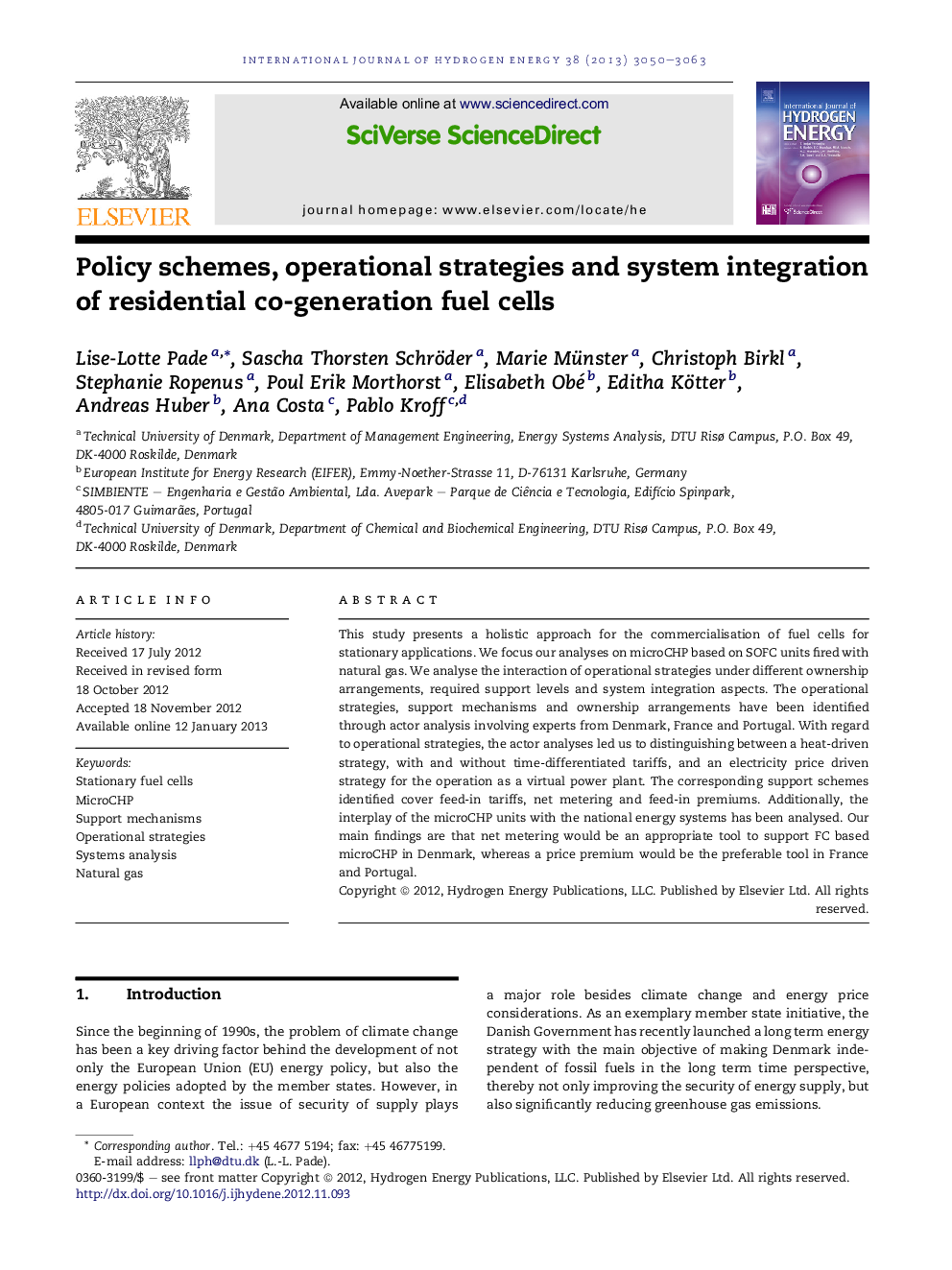| Article ID | Journal | Published Year | Pages | File Type |
|---|---|---|---|---|
| 1281972 | International Journal of Hydrogen Energy | 2013 | 14 Pages |
This study presents a holistic approach for the commercialisation of fuel cells for stationary applications. We focus our analyses on microCHP based on SOFC units fired with natural gas. We analyse the interaction of operational strategies under different ownership arrangements, required support levels and system integration aspects. The operational strategies, support mechanisms and ownership arrangements have been identified through actor analysis involving experts from Denmark, France and Portugal. With regard to operational strategies, the actor analyses led us to distinguishing between a heat-driven strategy, with and without time-differentiated tariffs, and an electricity price driven strategy for the operation as a virtual power plant. The corresponding support schemes identified cover feed-in tariffs, net metering and feed-in premiums. Additionally, the interplay of the microCHP units with the national energy systems has been analysed. Our main findings are that net metering would be an appropriate tool to support FC based microCHP in Denmark, whereas a price premium would be the preferable tool in France and Portugal.
► Ownership structure and technical operation of FC-based microCHP. ► The choice of the best support system differs between countries. ► Support fuel cell-based micro-combined heat and power in Denmark by net metering. ► In France and Portugal, units could operate as a virtual power plant. ► System effects depend on the composition of the residual power plant park.
